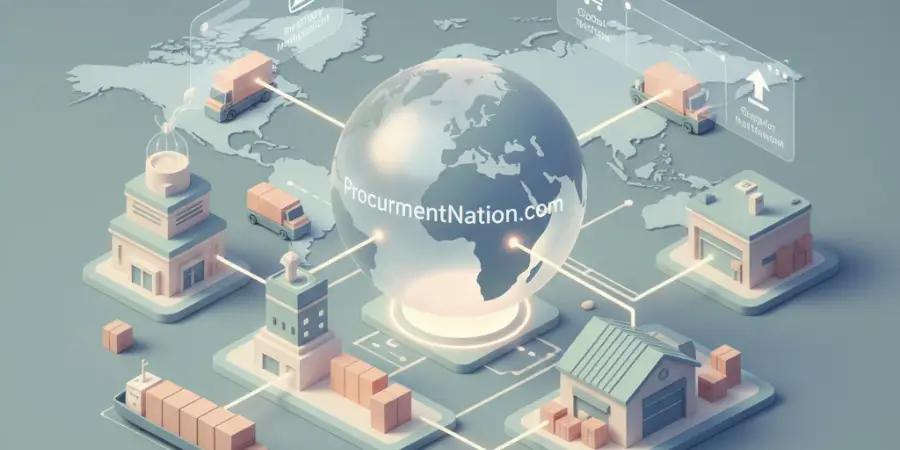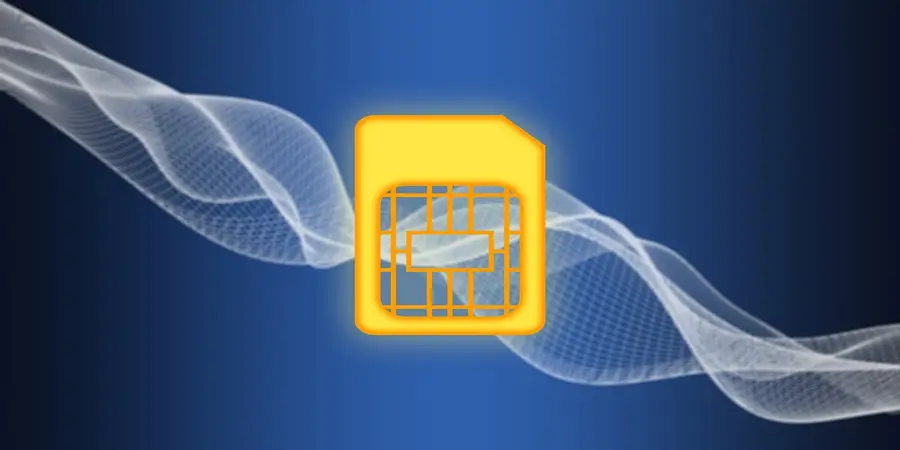The remote work revolution has fundamentally transformed how businesses approach talent acquisition, team building, and operational strategy. What began as a temporary pandemic response has evolved into a permanent shift that enables companies to access global talent pools while employees enjoy unprecedented flexibility and work-life balance. However, this transformation brings complex legal, compliance, and administrative challenges that require sophisticated solutions.
Employer of record (EOR) services have emerged as the critical infrastructure that makes the remote work revolution practically achievable for businesses of all sizes. By solving the complex puzzle of international employment law, tax compliance, and administrative management, EOR solutions enable companies to build truly global teams without the traditional barriers of geographic expansion.
The Global Remote Work Landscape
Statistical Overview of Remote Work Growth
The remote work transformation represents one of the most significant shifts in modern business history. Pre-2020 remote work adoption stood at approximately 5% of the global workforce. By 2025, that figure has stabilized at 35-40% across knowledge-based industries, with many companies adopting hybrid models that combine remote flexibility with in-person collaboration.
Geographic Distribution Trends Companies are increasingly hiring talent from emerging markets where skilled professionals offer exceptional value propositions. Popular remote hiring destinations include Eastern Europe, Southeast Asia, Latin America, and Africa, regions that offer strong educational systems, growing technology sectors, and competitive compensation expectations.
Industry Adoption Patterns Technology companies lead remote work adoption, with 85% offering fully remote or hybrid arrangements. Professional services, finance, marketing, and consulting industries follow closely, with 60-75% adoption rates. Even traditionally location-dependent industries are finding creative ways to incorporate remote talent for specialized functions.
Challenges of International Remote Hiring
Legal and Compliance Complexity International remote hiring creates complex legal relationships that span multiple jurisdictions. Employment laws, tax obligations, data protection requirements, and labor regulations vary dramatically between countries, creating compliance minefields for unprepared companies.
Administrative Overhead Managing international payroll, benefits administration, tax withholdings, and regulatory reporting across multiple currencies and legal systems requires specialized expertise and sophisticated systems that most companies lack internally.
Cultural and Communication Barriers Building cohesive team cultures across time zones, languages, and cultural differences requires intentional strategies and tools that many organizations are still developing.
How Does Employer of Record Work in Remote Work Contexts?
The Remote Work EOR Model
Understanding what is employer of record services in remote work contexts requires examining how traditional EOR concepts adapt to distributed workforce requirements. Unlike traditional international expansion where companies establish physical presence in target markets, remote work EOR arrangements enable hiring without any geographic footprint.
Legal Employment Structure The employer of record becomes the legal employer of remote workers in their home countries, handling all local employment law requirements while the hiring company maintains operational control over work assignments, performance management, and team integration.
Technology-Enabled Coordination Modern EOR platforms integrate seamlessly with remote work tools, enabling unified management of global teams through single interfaces that handle payroll, benefits, compliance, and employee management across multiple jurisdictions.
Operational Workflow for Remote EOR
Employee Onboarding Process Remote employee onboarding through employer of record (EOR) services involves coordinated processes that span legal compliance, technology setup, and cultural integration. The EOR handles legal employment establishment while your company manages role-specific training and team integration.
Ongoing Management Coordination Daily operations require clear communication channels between your management team, EOR provider, and remote employees. The best employer of record providers offer technology platforms that facilitate this coordination while maintaining compliance with local employment laws.
Performance and Career Development Performance management for EOR remote employees requires systems that comply with local employment laws while supporting your company’s management processes. This includes documentation requirements, performance improvement procedures, and termination protocols that vary significantly by jurisdiction.
Strategic Benefits of EOR for Remote Teams
Global Talent Access
Unrestricted Geographic Hiring EOR solutions eliminate geographic restrictions on talent acquisition, enabling companies to hire the best candidates regardless of location. This access to global talent pools provides competitive advantages that can transform business capabilities and growth trajectories.
Cost-Effective Talent Acquisition Many skilled markets offer exceptional talent at significantly lower compensation expectations than traditional technology hubs. EOR services enable companies to access these markets while maintaining full legal compliance and professional employment standards.
Specialized Skill Acquisition Global hiring through EOR arrangements enables access to specialized skills that may be scarce or expensive in your home market. This includes technical expertise, language capabilities, and industry knowledge that can enhance your competitive positioning.
Operational Flexibility and Scalability
Rapid Team Scaling How does employer of record work for rapid scaling? EOR solutions enable companies to add team members in new countries within days rather than months, providing unprecedented flexibility for responding to business opportunities or client demands.
Market Testing Capabilities Remote hiring through EOR arrangements enables low-risk market testing by hiring local talent without establishing physical presence. This approach provides market insights and customer access while minimizing investment and commitment.
Project-Based Staffing EOR flexibility supports project-based hiring that can scale up or down based on business requirements. This capability is particularly valuable for consulting firms, agencies, and companies with seasonal or cyclical staffing needs.
Technology Integration and Remote Work Management
EOR Platform Capabilities
Unified Management Interfaces Leading employer of record providers offer comprehensive platforms that integrate payroll management, compliance monitoring, employee communications, and performance tracking across multiple jurisdictions through single interfaces.
Integration with Remote Work Tools Modern EOR platforms integrate seamlessly with popular remote work tools including Slack, Microsoft Teams, Zoom, project management systems, and HRIS platforms. This integration enables unified workflow management regardless of employee location.
Real-Time Analytics and Reporting Comprehensive analytics provide insights into team productivity, compensation benchmarking, compliance status, and operational efficiency across global teams. These insights enable data-driven decisions about remote work strategies and team optimization.
Communication and Collaboration Solutions
Cross-Timezone Coordination Effective global team management requires sophisticated coordination strategies that account for time zone differences, cultural communication preferences, and local holiday schedules. EOR providers often offer guidance on best practices for global team coordination.
Cultural Integration Support The best employer of record providers offer cultural training and integration support that helps remote employees feel connected to your company culture while respecting local cultural norms and expectations.
Language and Communication Barriers EOR services often include language support, translation services, and cultural communication training that helps bridge language barriers and improve team effectiveness.
Compliance and Risk Management for Remote Teams
International Employment Law Compliance
Multi-Jurisdiction Legal Requirements Remote work arrangements create employment law obligations in each employee’s jurisdiction, regardless of where your company is based. EOR providers maintain expertise in multiple legal systems to ensure comprehensive compliance.
Data Protection and Privacy Compliance Remote work involves transferring sensitive employee and business data across international boundaries, creating complex data protection obligations under regulations like GDPR, CCPA, and local privacy laws.
Tax and Social Security Obligations International remote employees create tax and social security obligations in their home countries that require specialized knowledge and ongoing management. EOR providers handle these complex requirements while providing transparent reporting for your financial planning.
Risk Mitigation Strategies
Employment Law Risk Transfer Employer of record (EOR) arrangements transfer significant employment law risks from your company to professional providers who maintain specialized expertise and insurance coverage for international employment obligations.
Intellectual Property Protection Remote work arrangements require careful intellectual property protection strategies that comply with local laws while protecting your company’s confidential information and trade secrets.
Termination and Dispute Management Employment disputes and terminations in remote work contexts require specialized knowledge of local employment laws and cultural practices. EOR providers offer expertise in managing these situations while protecting your company’s interests.
Industry-Specific Remote Work Applications
Technology and Software Development
Technology companies have pioneered remote work adoption, using EOR services to build globally distributed development teams. Common applications include:
Development Team Distribution Companies often establish “follow-the-sun” development models where work progresses across time zones, enabling 24/7 development cycles and faster product delivery timelines.
Specialized Talent Acquisition EOR arrangements enable hiring of specialized technical talent in markets with strong educational systems and growing technology sectors, often at significant cost advantages compared to traditional technology hubs.
Customer Support and Success Teams Global customer bases require local language support and timezone coverage that remote teams through EOR arrangements can provide cost-effectively.
Professional Services and Consulting
Professional services firms leverage EOR solutions for client-focused remote hiring:
Client-Specific Expertise Hiring specialists with industry or regional expertise relevant to specific client engagements without long-term employment commitments.
Market Entry Support Using remote teams to establish market presence and client relationships before committing to physical offices or permanent operations.
Project-Based Scaling Rapidly scaling teams for large engagements while maintaining flexibility for project completion and resource reallocation.
Marketing and Creative Services
Marketing agencies and creative firms use remote EOR arrangements for:
Cultural and Language Expertise Hiring native speakers and cultural experts for international marketing campaigns and content creation that resonates with local audiences.
Creative Talent Access Accessing specialized creative talent in markets with strong design and creative traditions, often at competitive rates compared to traditional creative hubs.
Campaign and Project Support Scaling creative teams for major campaigns or projects while maintaining operational flexibility for changing client requirements.
Cost Optimization Strategies for Remote EOR
Compensation Strategy Development
Market-Rate Analysis EOR providers offer market intelligence that helps optimize compensation strategies for different geographic markets, balancing competitiveness with cost efficiency.
Currency and Economic Considerations Understanding currency fluctuations, inflation rates, and economic conditions in target markets enables more strategic hiring decisions and better long-term financial planning.
Benefits and Perquisites Optimization Local benefits requirements and expectations vary significantly between markets, creating opportunities for cost optimization while maintaining employee satisfaction and compliance.
Team Structure Optimization
Geographic Distribution Strategy Strategic team distribution across multiple markets can optimize costs while ensuring necessary skill coverage and operational continuity across time zones.
Role and Responsibility Allocation Allocating specific roles and responsibilities based on local market strengths, cost advantages, and cultural fit can improve both efficiency and employee satisfaction.
Career Development and Retention Developing career advancement pathways for remote EOR employees helps improve retention while building organizational capability and reducing replacement costs.
Performance Management and Team Building
Remote Team Integration Strategies
Onboarding and Cultural Integration Comprehensive onboarding programs that introduce remote employees to company culture, values, and expectations while respecting local cultural norms and communication preferences.
Regular Communication Rhythms Establishing regular communication patterns that account for time zone differences while ensuring all team members feel connected and informed about company developments and project progress.
Virtual Team Building Activities Creative virtual team building that builds relationships and trust across geographic and cultural boundaries, contributing to team cohesion and collaboration effectiveness.
Performance Measurement and Management
Objective Performance Metrics Developing clear, measurable performance indicators that work effectively in remote contexts while complying with local employment law requirements for performance management and documentation.
Feedback and Development Systems Regular feedback systems that provide remote employees with career development guidance while ensuring performance issues are addressed promptly and professionally.
Recognition and Reward Programs Recognition programs that acknowledge excellent performance while respecting local cultural preferences and legal requirements around employee rewards and incentives.
Future Trends in Remote Work and EOR
Technology Evolution
Artificial Intelligence Integration AI-powered tools are improving remote work coordination, automating administrative tasks, and providing predictive insights that help optimize team performance and satisfaction.
Virtual Reality and Collaboration Tools Emerging VR technologies promise to enhance remote collaboration by creating more immersive team experiences that bridge geographic distances more effectively.
Blockchain and Smart Contracts Blockchain technology may streamline international payroll and compliance processes by automating contract execution and providing transparent audit trails for employment transactions.
Regulatory Development
International Employment Law Evolution Governments are updating employment laws to address remote work realities, digital nomadism, and cross-border employment arrangements, creating new opportunities and compliance requirements.
Tax Treaty Updates International tax treaties are being updated to address remote work taxation issues, potentially simplifying compliance requirements and reducing double taxation risks.
Data Protection Harmonization Efforts to harmonize international data protection standards may simplify compliance requirements for companies with global remote teams.
Conclusion
The remote work revolution has permanently transformed business operations, creating unprecedented opportunities for global talent access while introducing complex compliance and management challenges. Employer of record (EOR) solutions provide the infrastructure necessary to capitalize on remote work benefits while managing associated risks effectively.
Understanding how does employer of record work in remote contexts enables businesses to build global teams that combine the best talent from multiple markets with operational efficiency and legal compliance. The best employer of record providers offer comprehensive platforms that integrate seamlessly with modern remote work tools while providing the specialized expertise necessary for international employment success.
What is employer of record services for remote work represents more than administrative convenience – it’s strategic infrastructure that enables competitive advantage through global talent access, operational flexibility, and cost optimization. Companies that master remote work through effective EOR partnerships position themselves for sustainable growth and market leadership in an increasingly distributed business environment.
The future belongs to companies that can effectively combine global talent with local compliance expertise, operational excellence, and cultural sensitivity. EOR solutions provide the foundation for building these capabilities while maintaining focus on core business objectives and sustainable growth strategies.
















